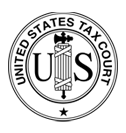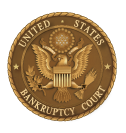Bankruptcy FAQ’s
What is bankruptcy?
Bankruptcy is a legal process that helps individuals or businesses in financial trouble manage or eliminate their debts under the protection of the court.
What are the different types of bankruptcy?
For individuals, the most common types are Chapter 7 and Chapter 13. Chapter 7 generally involves discharging unsecured debt but there are income limitations for Chapter 7, while Chapter 13 involves a repayment plan over several years.
How do I know if I should file for bankruptcy?
If you’re struggling with overwhelming debt and can’t manage payments despite your best efforts, bankruptcy might be an option. Consulting with a bankruptcy attorney can help determine if it’s the right choice for you.
Will bankruptcy stop creditors from harassing me?
Yes, once you file for bankruptcy, an automatic stay is issued, which legally prevents most creditors from continuing collection efforts like calls, letters, or lawsuits.
Will I lose everything I own if I file for bankruptcy?
No, Ohio has exemptions that protect certain types and amounts of property. A bankruptcy attorney can help you understand what property is protected in your situation.
Can I keep my house and car if I file for bankruptcy?
It depends on various factors, including the type of bankruptcy, the equity in your assets, and your ability to continue making payments. In most cases, people can keep their homes and cars by reaffirming the debt or through exemptions.
Can I file for bankruptcy without an attorney?
It’s possible, but bankruptcy law is complex, and filing without legal assistance can be risky and cause you to lose property you would not otherwise lose if you had legal counsel. An attorney can guide you through the process, ensuring your rights are protected and helping you achieve the best possible outcome.
What debts can be discharged in bankruptcy?
Most unsecured debts like credit card debt, medical bills, and personal loans can be discharged in bankruptcy. However, some debts like student loans and recent tax debts may not be discharged.
Will I have to go to court if I file for bankruptcy
No, you’ll need to attend a meeting of creditors (341 Meeting), but its usually straightforward. These are held via Zoom at your lawyer’s office.
Can I file for bankruptcy more than once?
Yes, but there are time limits between filings. For example, if you previously filed for Chapter 7 bankruptcy, you’ll need to wait eight years before filing for Chapter 7 again. More than one Chapter 13 can be filed within this eight year period depending upon your circumstances.
What happens to my co-signers or joint account holders if I file for bankruptcy?
Bankruptcy may protect you from creditors, but it doesn’t necessarily protect co-signers or joint account holders. They might still be responsible for the debt.
How much does it cost to file for bankruptcy?
The filing fees and attorney fees vary depending on the complexity of your case and the type of bankruptcy. Some individuals may qualify for fee waivers or payment plans.
Will I ever be able to get credit again after bankruptcy?
Yes, many people start rebuilding their credit soon after bankruptcy. Over time, by managing credit responsibly, you can qualify for new credit cards, loans, and mortgages.
Will I lose my job if I file for bankruptcy?
No, your employer cannot fire you solely for filing bankruptcy. It’s protected by Federal Law.




